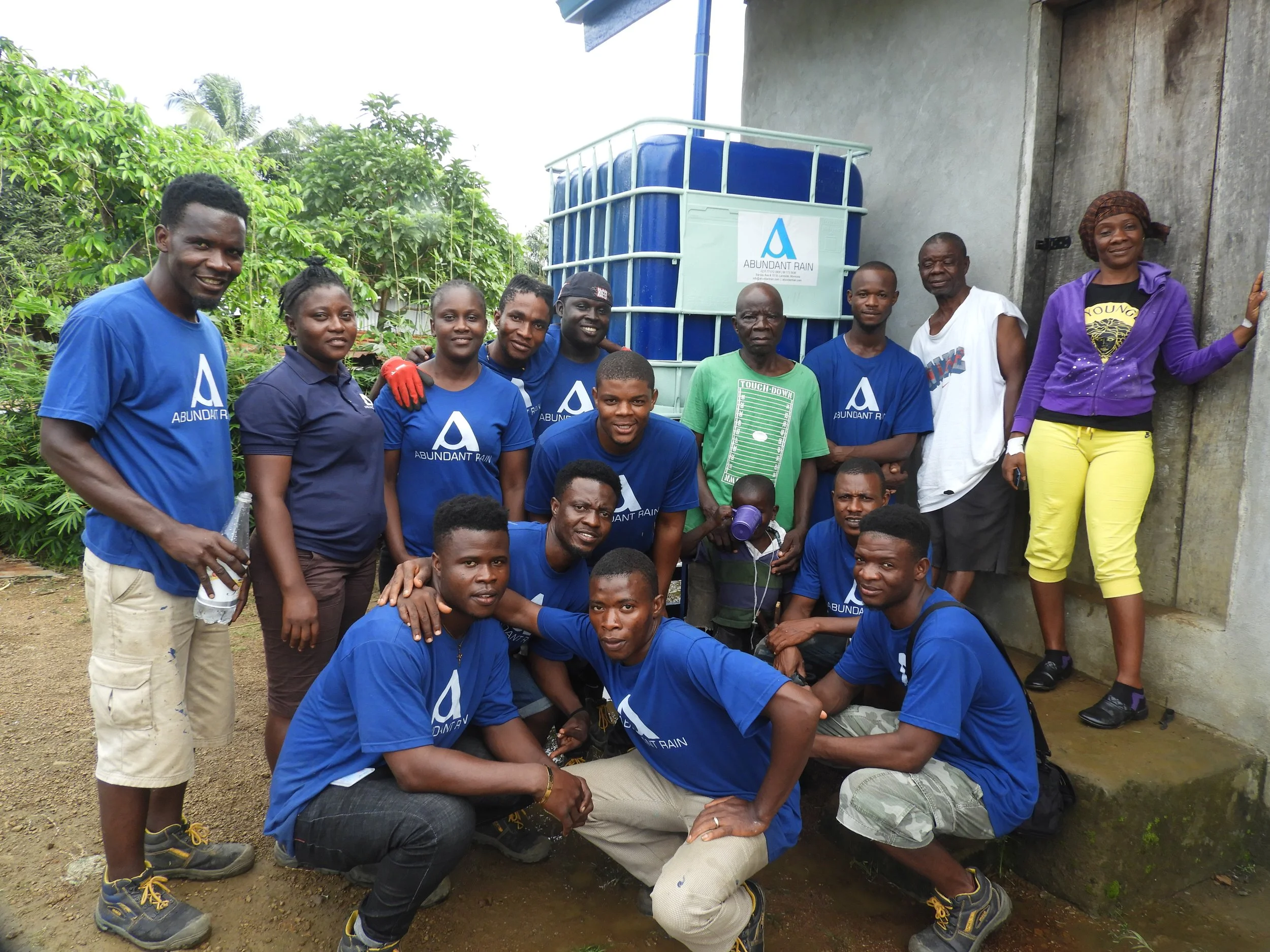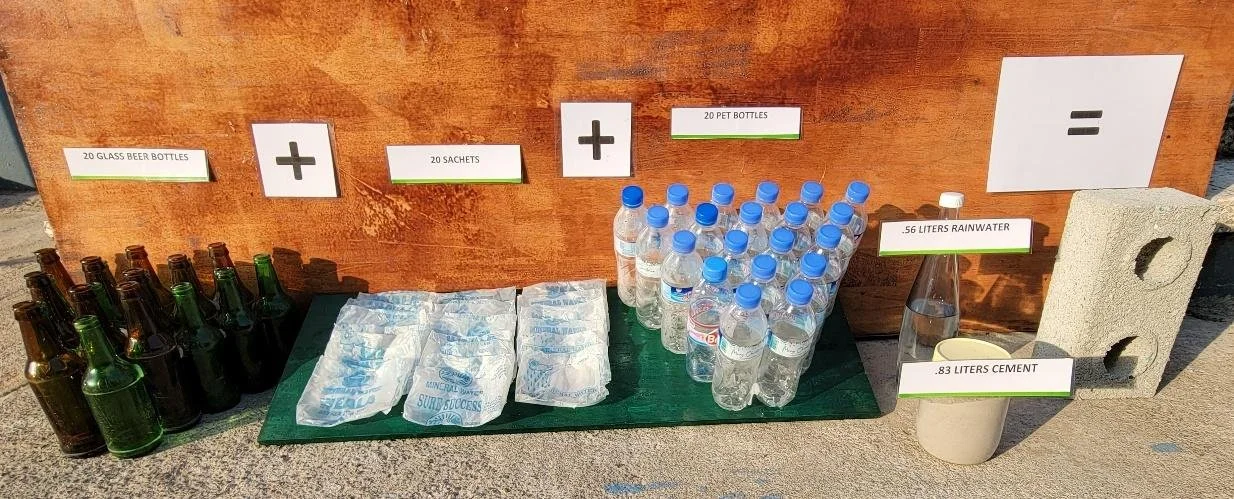Trading Plastic for Water
A sustainable solution for clean water, sanitation,
and environmental recovery
The Abundant Rain team at a rainwater harvesting project in the Rockhill Benson community
The Problems We’re Tackling
WATER
Unprotected wells are the #1 source of drinking water in Liberia.
Contamination occurs with every big rain, as the high water table pushes pollutants into hand-dug wells.
Liberia receives a lot of rain— up to 7 meters every year. With constant flooding, new wells only stay clean for a few months.
PLASTIC WASTE
Up to 1,872 tonnes of plastic waste flow into Liberia’s streets and waterways every day.
Garbage collection is impossible because the country only has two paved highways and roads frequently washout.
Open dumping, burning and burial are the primary methods of managing plastic waste, pumping pollution into the air, water, and soil.
SANITATION
>90% of Liberians use pit latrines or open defecation.
There is no sanitation infrastructure because of a history of conflict.
Open defecation contaminates wells, soil, and groundwater.
Deadly outbreaks like Ebola and cholera spread unchecked.
Without clean water, sanitation, and plastic waste management, Liberia can’t move forward
HEALTH problems
A 30% economic slowdown occurs during every rainy season.
Waterborne sickness is a primary cause of this economic stagnation.
Heart, lung, and kidney diseases also result from burning and burial of plastic trash.
Diarrhea is the #1 cause of childhood death.
DISPARITY
Women and girls miss out on school and income because they have to collect water and care for the sick.
Gender based violence threatens women and girls while carrying water.
Buying water in plastic sachets is the only alternative to using dirty wells.
Paying for water means poor families can’t afford schooling.
CLIMATE CRISIS
Plastic in Liberia’s wetlands is destroying mangrove forests
Mangroves are critical for mitigating flood damage, storing carbon, and reducing soil erosion.
Plastic in freshwater and ocean habitats is crippling fisheries and biodiversity.
The Solution—Abundant RAIN Recycling + Sanitation Stations
Abundant RAIN Recycling + Sanitation Stations are neighborhood hubs where residents can trade plastic trash for rainwater and the use of toilets and showers.
By leveraging one problem to solve the next, we are:
Engaging communities
Growing a sustainable approach
Delivering critical services
Powering a thriving upcycling economy
The Abundant Recycling team demonstrates our Rain, Recycling, and Sanitation stations, where community members trade plastic waste for containers of clean water and the use of toilets and showers.
The Impact of our RAIN Stations
CLEAN WATER
By 2029, there will be:
63 Abundant RAIN Recycling + Sanitation Stations in the city of Paynesville
250,000 people served
$9.4 million USD per year saved by families on water sachets
public SANITATION
A Trailblazing Solution for Sanitation
Paynesville will be the first city in the world to deliver clean water + sanitation throughout their impoverished, informal communities
The system is funded by a sustainable circular economy for valuable products made from recycled plastic
PLASTIC cleanup
16,380 tonnes of plastic per year will be collected by the Paynesville network and upcycled into concrete blocks and fuel
$6.3 million USD saved per year by the city on waste hauling + landfills
706 tonnes of plastic sachet waste will be eliminated per year
Healthier people and a healthier environment drive a healthier economy
improved HEALTH
250,000 fewer cases of stomach diseases like typhoid, dysentery, cholera, and Ebola
Women and girls are freed from caretaking for sick family members
National economy stops shrinking during every rainy season
ECONOMIC growth
Women and girls are freed to participate in educational and income-earning activities
Uninterrupted productivity and reliable water and sanitation help communities prosper
New jobs are created in plastic collection and recycling businesses
CLIMATE RESILIENCE
The plastic-for-water trade creates:
Efficient plastic collection
Engaged communities
Sustainable circular economy
Lasting behavior change
Plastic cleanup at scale
Turning plastic waste into valuable products
With R BLOKS, we turn recycled glass, plastic bottles, and plastic sachets into concrete blocks that are lighter, stronger, and more durable than traditional concrete.
Our Partners
Paynesville City Corporation
Conservation International
Concern Worldwide
Rotary International
National WASH Commission of Liberia
Ever Green Recycling Institute



